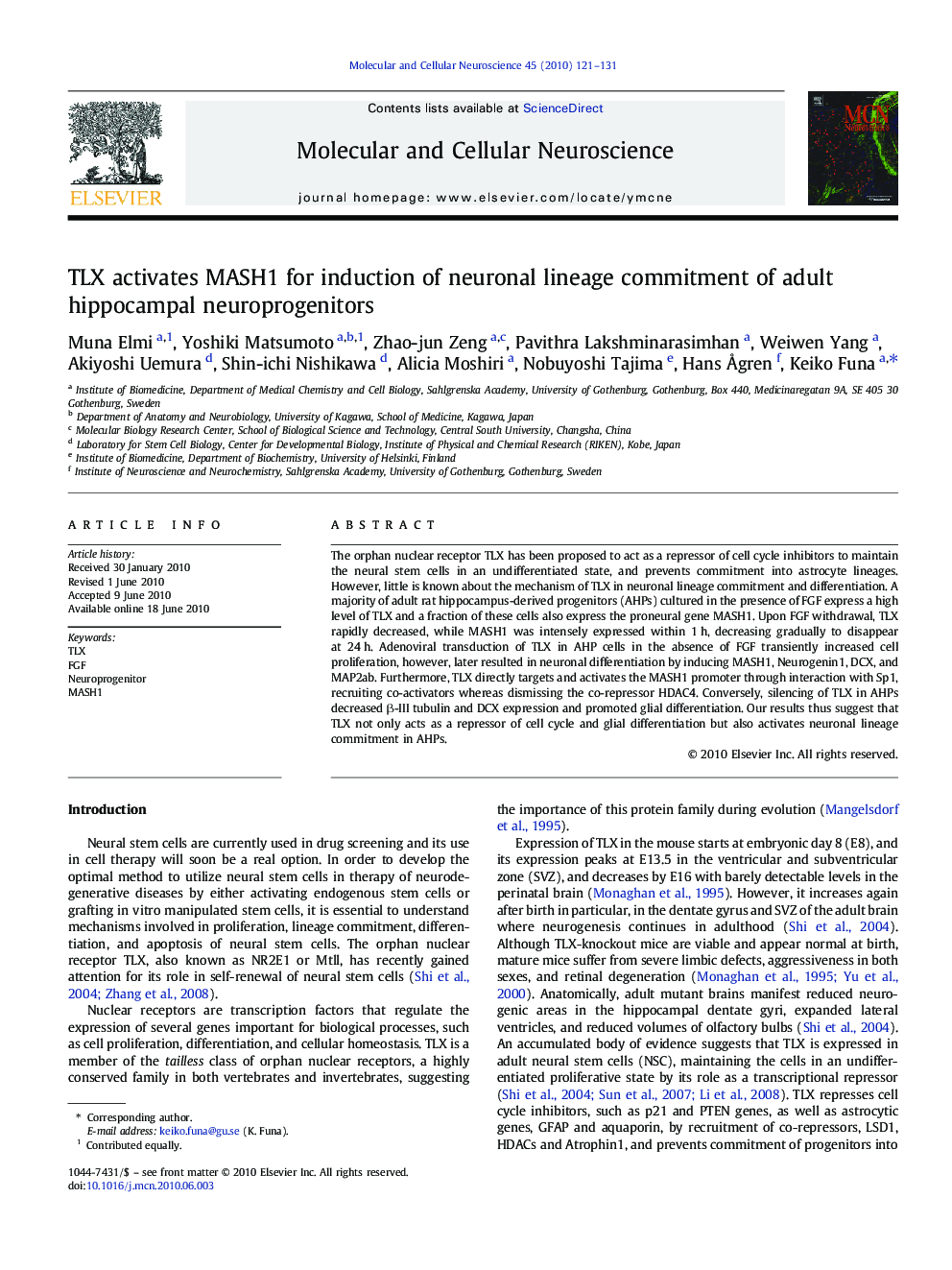| Article ID | Journal | Published Year | Pages | File Type |
|---|---|---|---|---|
| 2198758 | Molecular and Cellular Neuroscience | 2010 | 11 Pages |
The orphan nuclear receptor TLX has been proposed to act as a repressor of cell cycle inhibitors to maintain the neural stem cells in an undifferentiated state, and prevents commitment into astrocyte lineages. However, little is known about the mechanism of TLX in neuronal lineage commitment and differentiation. A majority of adult rat hippocampus-derived progenitors (AHPs) cultured in the presence of FGF express a high level of TLX and a fraction of these cells also express the proneural gene MASH1. Upon FGF withdrawal, TLX rapidly decreased, while MASH1 was intensely expressed within 1 h, decreasing gradually to disappear at 24 h. Adenoviral transduction of TLX in AHP cells in the absence of FGF transiently increased cell proliferation, however, later resulted in neuronal differentiation by inducing MASH1, Neurogenin1, DCX, and MAP2ab. Furthermore, TLX directly targets and activates the MASH1 promoter through interaction with Sp1, recruiting co-activators whereas dismissing the co-repressor HDAC4. Conversely, silencing of TLX in AHPs decreased β-III tubulin and DCX expression and promoted glial differentiation. Our results thus suggest that TLX not only acts as a repressor of cell cycle and glial differentiation but also activates neuronal lineage commitment in AHPs.
